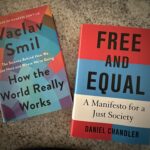Simon During makes an interesting argument about defending the humanities in his essay in Public Books. Our debate about STEM versus the humanities may have it all wrong. In attempting to argue for the humanities value to society, we are instead missing the point entirely. One point that me makes later in his essay is that the “humanities” is a category that is too broad to represent any one discipline, let alone a particular point of view.
“I would suggest that it leads us to picture the humanities as something like a form of life, or better, because vaguer still, as something like a world, an institutionalized world. A world that contains smaller worlds. A simultaneously beleaguered and privileged world whose members typically belong to other, somewhat ontologically similar worlds, too.
“The main reason to think in such terms is to avoid betraying what is central to the humanities: that they cannot be properly defined in terms of their parts, in terms, for instance, of their instrumentalities or avoidance of instrumentality; or of the dispositions they nurture; or of the interests they nourish and serve; or of the knowledge and techniques they produce; or of the professional/bureaucratic protocols they enact; or of the ethics perhaps still installed within them. They cannot be limited to their constitutive rules or methods or personae or models or “values.†Those who join them can find their own paths through them and the rule-bound institutions they are based in, outside of essences and definitions, making their own connections and alliances, as in a world. And they don’t share a single project, if indeed they have projects at all.”





